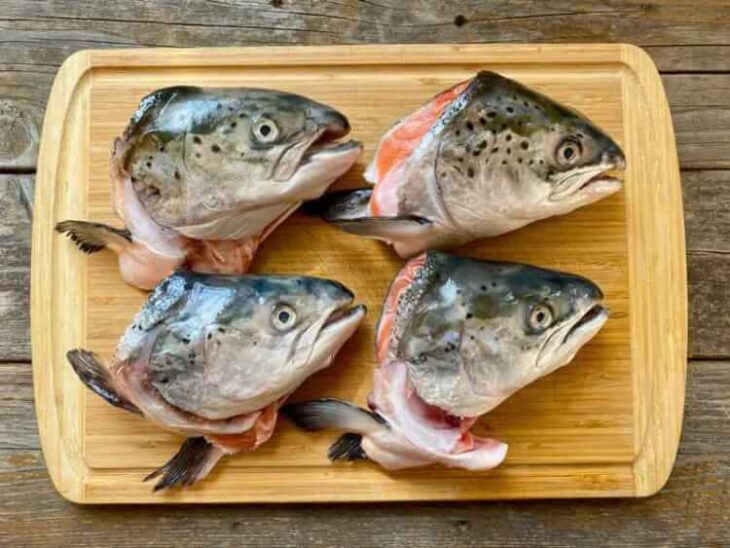economic poverty
There is nothing new under the sun, especially in a time like this where things are expensive and individuals are trying to make ends meet, despite the continuous rise in the cost of bills for food and services.
The love for protein is also gradually dying, as many can hardly afford their daily bread, talkless of eating with protein.
The cost of dairy products like fish, meat and eggs has also risen by over a hundred percent, compared to last year.
Economy and lifestyle findings show that a kilo of fish, depending on the species, ranges between N3,500 to N8,000.
A kilo of full chicken now sells for between N9,000 to N12,000. A kilo of turkey laps is now N8,000, while that of chicken is N6,000.
The price of a crate of a medium-sized egg now ranges between N5,200 to N6,000, which was N2,000 last year.
Even kpomo (cowhide) is no longer affordable, as the price of a thick and big piece, which was between N20 and N50, has now increased to N700.
To meet up with the consumption of protein, some individuals have now resorted to buying fish heads from cold rooms.
A visit to some cold rooms in Lagos showed heads of fish with little flesh portioned in small quantities and sold between the ranges of N500 to N1,000.
According to Mrs. Shade Ayinde, a worker in a cold room, these heads of fish are usually bought by people producing food spices such as food seasoning.
She added: “But when individuals started asking for heads of fish for consumption purposes, we had to start portioning them as you can see in batches of N500 to N1,000.
“This is the head of fish that some people will tell you to remove when they purchase a full fish.
“This life is not balanced at all and that is what the economy has downgraded many to today.”
Another fish seller in the market, Mrs. Grace Arogundade, said: “Recently, some individuals do come to the market sourcing fish heads.
“I usually think they wanted to give it to their dogs.
“So I always store it for them because most of my customers don’t cut their fish with the head.
“They always remove it to avoid the bones getting into the food.
“But one day, I visited the cold room to get fish and saw them display heads of fish for sale.
“I priced them and was told a portion was N700 to N1,000 depending on the size.
“It then dawned on me that those people coming to get head of fish from me at the market were consuming it, not giving it to their dogs.
“I wept because this was my very first time experiencing this and I knew right then that this country was finished.”
A woman, who identified herself as Racheal said: “I don’t have N10,000 to feed the whole house with fish.
“I have five children including me to make it six.
“My husband left after I had my last child and it has been me struggling with everything I need.
“I do buy heads of fish most times and mix it with kpomo to give my soup taste and enable my children to have protein.
“Since the price of a whole fish now costs over N3,000 and won’t serve us for two days, I had to resort to buying its head which also comes with some flesh because they are broken from the body while it was being offloaded.
“At least my children and I are healthy. That is my only joy.”
According to the National Bureau of Statistics, NBS, 2022 Multidimensional Poverty Index survey reveals 63 percent of persons living within Nigeria (133 million people) are multidimensionally poor.
The survey further showed that 65 percent of the poor (86 million people) live in the North, while 35 percent (nearly 47 million) live in the South.
“Over half of the population of Nigeria are multidimensionally poor and cook with dung, wood or charcoal, rather than cleaner energy. High deprivations are also apparent nationally in sanitation, time to healthcare, food insecurity, and housing”, the report stated.
The World Bank in its Nigeria development update, titled, ‘Turning the Corner: From Reforms & Renewed Hope, to Results’, released in December last year, said the poverty rate in the country increased to 46 per cent in 2023 representing 104 million poor Nigerians from 40 percent in 2018 representing 79 million poor Nigerians.
“Sluggish growth and rising inflation have increased poverty from 40 per cent in 2018 to 46 per cent in 2023, pushing an additional 24 million people below the national poverty line,” the World Bank said.
Credit: Vanguard
Follow us now for more news in Oyo State. Oyo Truth is an independent online news /medium reporting up-to-date events, happenings and activities related to Oyo State, Nigeria.






Leave a Reply